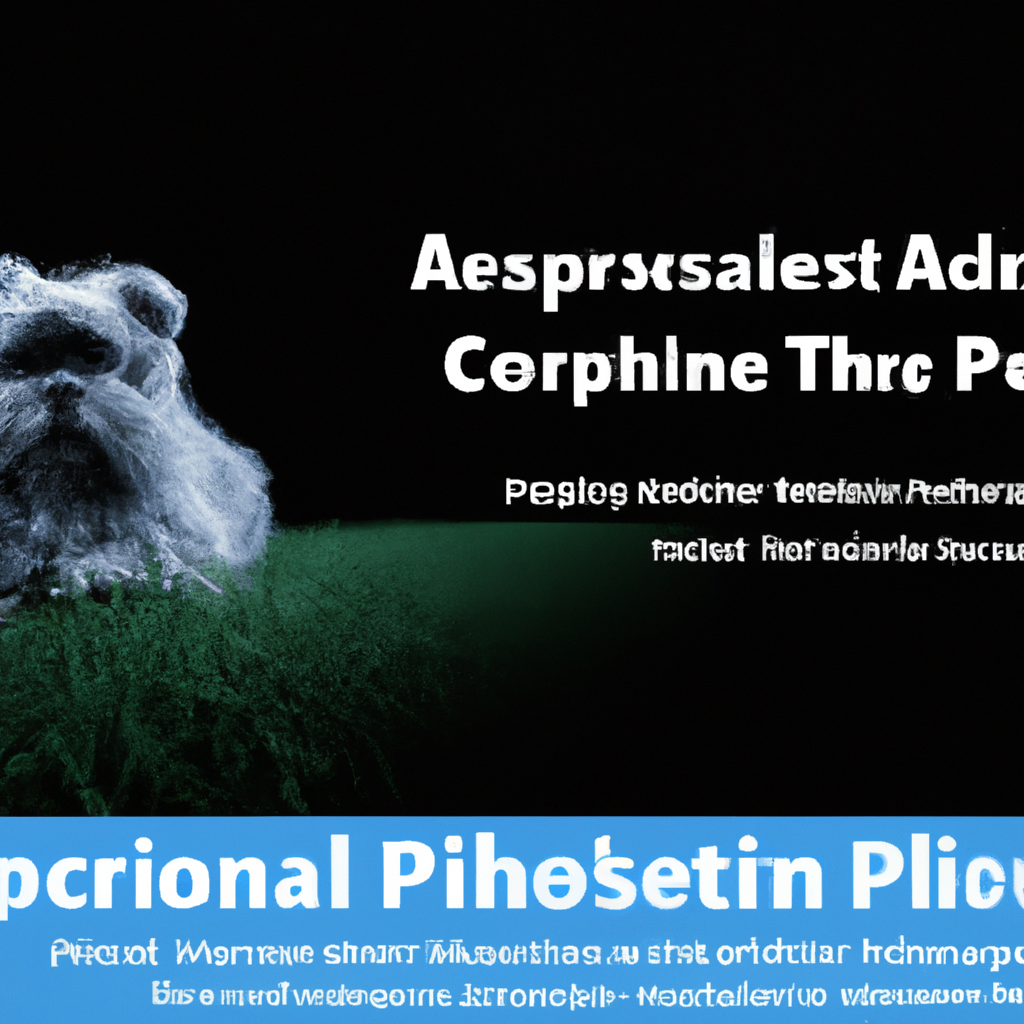Affenpinschers, also known as “Monkey Terriers,” are small but sturdy dogs known for their distinctive appearance and lively personality. Despite their robust nature, they are prone to certain health issues. Preventing health issues in Affenpinschers involves a combination of regular veterinary check-ups, a balanced diet, adequate exercise, and proper grooming. It also includes being aware of the specific health conditions to which this breed is predisposed, such as hip dysplasia, heart problems, and eye conditions. This guide will provide comprehensive information on how to maintain the health of Affenpinschers and prevent potential health issues.
Understanding the Common Health Issues in Affenpinschers
Affenpinschers, affectionately known as “Monkey Dogs,” are a small but sturdy breed known for their distinctive appearance and playful personalities. However, like all breeds, they are prone to certain health issues. Understanding these common health problems and how to prevent them can help ensure your Affenpinscher lives a long, healthy, and happy life.
Affenpinschers are generally healthy dogs, but they can be susceptible to specific genetic conditions. One of the most common is hip dysplasia, a condition where the hip joint doesn’t fit together properly, leading to discomfort and mobility issues. Regular vet check-ups can help detect this condition early, and maintaining a healthy weight can prevent unnecessary strain on your dog’s joints.
Another common issue in Affenpinschers is a condition called patellar luxation, where the kneecap dislocates or moves out of its normal position. This condition can cause lameness and pain, but maintaining a healthy weight and providing regular exercise can help manage it.
Affenpinschers are also prone to certain eye conditions, such as cataracts and progressive retinal atrophy (PRA). Regular eye exams can help catch these conditions early, and there are treatments available to manage them.
Heart disease, particularly a condition called mitral valve disease, is another concern for Affenpinschers. Regular vet check-ups, a balanced diet, and plenty of exercises can help keep your dog’s heart healthy.
While these health issues may sound daunting, there are several steps you can take to prevent them and ensure your Affenpinscher stays healthy. Firstly, regular vet check-ups are crucial. These check-ups can help catch any potential health issues early, allowing for early intervention and treatment.
Secondly, maintaining a healthy weight is vital. Obesity can exacerbate many of the conditions Affenpinschers are prone to, including hip dysplasia, patellar luxation, and heart disease. Feeding your dog a balanced diet and ensuring they get plenty of exercises can help keep their weight in check.
Exercise is not just important for weight management; it’s also crucial for overall health. Regular physical activity can help keep your Affenpinscher’s joints healthy, reduce the risk of heart disease, and even help prevent behavioral issues.
Lastly, a balanced diet is key. Feeding your Affenpinscher high-quality dog food can help ensure they get the nutrients they need to stay healthy. Some Affenpinschers may also benefit from supplements, such as glucosamine for joint health or omega-3 fatty acids for heart health. However, always consult with your vet before starting any new supplement regimen.
In conclusion, while Affenpinschers are prone to certain health issues, understanding these conditions and taking preventative measures can help ensure your dog stays healthy. Regular vet check-ups, a balanced diet, regular exercise, and maintaining a healthy weight are all crucial steps in preventing health issues in Affenpinschers. With the right care and attention, your Affenpinscher can live a long, happy, and healthy life.
Effective Ways to Prevent Dental Problems in Affenpinschers
Affenpinschers, affectionately known as “Monkey Dogs,” are a small breed of dog that originated in Germany. These adorable, energetic, and loyal companions are known for their distinctive appearance and playful nature. However, like all breeds, Affenpinschers are prone to certain health issues, particularly dental problems. But don’t worry, there are effective ways to prevent these issues and ensure your furry friend stays healthy and happy.
Firstly, regular brushing is key. Just like humans, dogs need their teeth brushed to remove plaque and prevent tartar buildup. For Affenpinschers, daily brushing is ideal, but if that’s not possible, aim for at least three times a week. Use a dog-friendly toothpaste and a soft-bristled toothbrush designed for small breeds. If your Affenpinscher is resistant to brushing, try flavored toothpaste designed for dogs, which can make the process more enjoyable for them.
Next, consider incorporating dental chews into your Affenpinscher’s routine. Dental chews are not only a tasty treat for your dog, but they also help clean their teeth and freshen their breath. They work by mechanically scraping off plaque and tartar as your dog chews them. However, remember that dental chews are not a substitute for brushing, but rather a supplement to it.
Another effective way to prevent dental problems in Affenpinschers is through a balanced diet. Feeding your dog a diet that’s rich in nutrients and low in processed foods can help maintain their overall health, including their dental health. Some vets recommend dry food over wet food for dental health, as the crunching can help clean your dog’s teeth. However, it’s important to consult with your vet to determine the best diet for your specific dog.
Regular vet check-ups are also crucial in preventing dental issues. Your vet can perform a thorough dental examination and professional cleaning, which can help catch any potential problems early. They can also provide personalized advice based on your Affenpinscher’s specific needs and health history. It’s recommended to have a dental check-up at least once a year, but your vet may suggest more frequent visits depending on your dog’s health.
Lastly, pay attention to any changes in your Affenpinscher’s behavior or eating habits. If your dog is suddenly reluctant to eat, drooling excessively, or pawing at their mouth, it could be a sign of dental discomfort. Bad breath can also be a sign of dental disease. If you notice any of these signs, it’s important to consult with your vet as soon as possible.
In conclusion, preventing dental problems in Affenpinschers involves a combination of regular brushing, dental chews, a balanced diet, regular vet check-ups, and being attentive to any changes in your dog’s behavior. By taking these steps, you can help ensure your Affenpinscher maintains a healthy mouth and a happy life. Remember, your Affenpinscher’s dental health is an important part of their overall well-being, so it’s worth investing the time and effort to keep their teeth in top shape.
How to Prevent Obesity in Affenpinschers
Affenpinschers, affectionately known as “Monkey Dogs,” are a small but sturdy breed known for their distinctive, scruffy appearance and playful, energetic nature. While these little dogs are generally healthy, they are prone to certain health issues, including obesity. As a responsible Affenpinscher owner, it’s crucial to understand how to prevent obesity in your furry friend to ensure they live a long, healthy, and happy life.
Obesity in Affenpinschers, like in humans, is a result of an imbalance between energy intake and energy expenditure. Simply put, if your Affenpinscher is consuming more calories than they’re burning off, they’re likely to gain weight. This excess weight can lead to a host of health problems, including diabetes, heart disease, and joint issues. Therefore, preventing obesity is not just about keeping your dog looking good, but also about maintaining their overall health.
The first step in preventing obesity in Affenpinschers is providing a balanced diet. It’s easy to overfeed these small dogs, especially when they look at you with those pleading eyes. However, it’s important to resist the temptation to overindulge them. Instead, feed them high-quality dog food that’s appropriate for their age, size, and activity level. Avoid giving them table scraps or too many treats, as these can quickly add up in calories.
Next, regular exercise is key. Affenpinschers are active and energetic dogs that require daily physical activity to maintain a healthy weight. This could be in the form of walks, playtime in the yard, or even indoor games. Remember, exercise isn’t just good for their physical health, but also for their mental well-being. It helps to keep them stimulated and prevents boredom, which can sometimes lead to overeating.
Regular vet check-ups are also essential in preventing obesity in Affenpinschers. Your vet can monitor your dog’s weight and provide guidance on their dietary needs as they age. They can also identify any potential health issues early on, before they become serious problems.
Another important aspect of preventing obesity in Affenpinschers is understanding their unique dietary needs. These dogs have a fast metabolism, which means they burn calories quickly. This can make them prone to weight gain if they’re not fed the right type of food. Look for dog food that’s high in protein and low in fillers like corn and wheat.
Lastly, be mindful of your Affenpinscher’s behavior and habits. If you notice they’re gaining weight, eating more than usual, or becoming less active, these could be signs of a health issue. Don’t ignore these changes – consult your vet to rule out any underlying conditions.
In conclusion, preventing obesity in Affenpinschers involves a combination of a balanced diet, regular exercise, routine vet check-ups, and an understanding of their unique dietary needs. It’s also about being a vigilant and responsible owner who pays attention to their dog’s behavior and habits. With the right care and attention, you can ensure your Affenpinscher maintains a healthy weight and lives a long, happy life.
Preventing Heart Diseases in Affenpinschers: A Comprehensive Guide

Affenpinschers, affectionately known as “Monkey Dogs,” are a small but sturdy breed known for their distinctive appearance and playful personalities. However, like all breeds, they are susceptible to certain health issues, including heart diseases. As a responsible pet owner, it’s crucial to understand how to prevent these health issues and ensure your Affenpinscher leads a long, healthy, and happy life.
Heart diseases in Affenpinschers can range from congenital conditions, which are present at birth, to acquired diseases that develop over time. One of the most common heart conditions in this breed is Mitral Valve Disease (MVD), a degenerative disease that affects the heart’s mitral valve. If left untreated, MVD can lead to heart failure.
Preventing heart diseases in Affenpinschers begins with a healthy diet. A balanced diet rich in lean proteins, whole grains, fruits, and vegetables can help maintain a healthy weight and reduce the risk of heart disease. Avoid feeding your Affenpinscher table scraps or foods high in fat and sodium, which can contribute to obesity and heart disease.
Regular exercise is another key component in preventing heart diseases. Affenpinschers are energetic and playful dogs that require daily physical activity to keep their hearts healthy. This can include walks, playtime in the yard, or even agility training. However, it’s important to remember that Affenpinschers are a brachycephalic breed, meaning they have short noses and flat faces, which can make them prone to overheating. Therefore, avoid strenuous exercise during hot weather and always provide plenty of fresh water.
Routine veterinary care is also essential in preventing heart diseases. Regular check-ups allow your vet to monitor your Affenpinscher’s heart health and catch any potential issues early. Your vet may recommend certain tests, such as echocardiograms or electrocardiograms, to assess your dog’s heart function. If your Affenpinscher is at a higher risk for heart disease due to age or genetics, your vet may also recommend medications or supplements to support heart health.
In addition to these preventative measures, it’s important to be aware of the signs of heart disease in Affenpinschers. Symptoms can include coughing, difficulty breathing, decreased appetite, lethargy, and fainting. If you notice any of these signs, it’s crucial to seek veterinary care immediately. Early detection and treatment can significantly improve your Affenpinscher’s prognosis and quality of life.
Lastly, if you’re considering adding an Affenpinscher to your family, it’s important to choose a reputable breeder who prioritizes health and genetic testing. This can help ensure that your new furry friend has the best possible start in life and reduce the risk of congenital heart diseases.
In conclusion, while Affenpinschers are prone to certain heart diseases, there are many steps you can take to help prevent these conditions and ensure your dog leads a long and healthy life. A balanced diet, regular exercise, routine veterinary care, and awareness of the signs of heart disease are all crucial components of preventative care. With the right care and attention, your Affenpinscher can enjoy many happy and healthy years by your side.
The Role of Diet in Preventing Health Issues in Affenpinschers
Affenpinschers, affectionately known as “Monkey Dogs,” are a small but sturdy breed known for their distinctive appearance and playful personalities. However, like all breeds, they are prone to certain health issues. One of the most effective ways to prevent these health problems is through a carefully managed diet.
Affenpinschers are predisposed to certain health conditions such as hip dysplasia, heart disease, and obesity. These conditions can be significantly influenced by diet, making nutrition a critical aspect of their overall health. A balanced diet can help maintain a healthy weight, support joint health, and promote a strong cardiovascular system.
When it comes to feeding your Affenpinscher, quality is key. High-quality dog food, whether commercially prepared or home-cooked, should be the cornerstone of your pet’s diet. These foods are typically rich in lean proteins, whole grains, fruits, and vegetables, providing the essential nutrients your dog needs. Avoid foods with fillers, artificial additives, and excessive amounts of unhealthy fats and sugars.
Portion control is another crucial aspect of an Affenpinscher’s diet. Despite their small size, these dogs have a big appetite and can easily become overweight if their food intake is not monitored. Overweight dogs are at a higher risk for a host of health problems, including heart disease and joint issues. Therefore, it’s important to feed your Affenpinscher measured meals and avoid free-feeding.
Supplements can also play a role in preventing health issues in Affenpinschers. For instance, glucosamine and chondroitin can support joint health and may help prevent or manage hip dysplasia. Omega-3 fatty acids, found in fish oil, can support heart health and help maintain a shiny, healthy coat. However, it’s important to consult with your vet before starting any supplement regimen.
Hydration is another often overlooked aspect of a dog’s diet. Affenpinschers, like all dogs, need plenty of fresh water to stay healthy. Dehydration can lead to a host of health problems, including kidney disease and urinary tract infections. Make sure your Affenpinscher always has access to clean, fresh water.
While diet plays a significant role in preventing health issues in Affenpinschers, it’s not the only factor. Regular exercise, routine veterinary care, and plenty of love and attention are also crucial for your pet’s overall health and well-being.
Exercise helps maintain a healthy weight and promotes cardiovascular and joint health. Regular vet visits allow for early detection and management of potential health issues. And of course, love and attention contribute to a happy, well-adjusted dog.
In conclusion, a balanced diet is a powerful tool in preventing health issues in Affenpinschers. High-quality food, portion control, supplements, and hydration all play a role in maintaining your pet’s health. However, remember that diet is just one piece of the puzzle. Regular exercise, veterinary care, and plenty of love and attention are also essential for your Affenpinscher’s overall health and well-being. With the right care and attention, your Affenpinscher can lead a long, healthy, and happy life.
Exercise Routines to Keep Your Affenpinscher Healthy
Affenpinschers, often referred to as “Monkey Terriers” due to their distinct primate-like appearance, are a small but sturdy breed known for their playful and adventurous nature. Despite their small size, these dogs are full of energy and require regular exercise to maintain their health. However, like any breed, Affenpinschers are prone to certain health issues. Fortunately, with the right exercise routine, many of these health problems can be prevented.
Affenpinschers are known for their agility and speed, making them excellent candidates for activities that challenge these skills. Regular walks are a must, but to keep your Affenpinscher’s mind and body in top shape, consider incorporating activities like agility training or fetch games into their routine. These activities not only provide physical exercise but also stimulate their minds, helping to prevent cognitive decline.
However, it’s important to remember that Affenpinschers are a brachycephalic breed, meaning they have a short nose and flat face. This can make them prone to respiratory issues, so it’s crucial to monitor your dog during exercise and ensure they don’t overexert themselves. On particularly hot days, try to limit outdoor activities and provide plenty of water to prevent overheating.
In addition to regular exercise, maintaining a healthy weight is crucial for preventing health issues in Affenpinschers. Obesity can lead to a host of problems, including heart disease, diabetes, and joint issues. Regular exercise, combined with a balanced diet, can help keep your Affenpinscher’s weight in check.
Joint health is another area of concern for Affenpinschers. These dogs are prone to conditions like hip dysplasia and patellar luxation, which can cause pain and mobility issues. Regular, low-impact exercise can help keep your Affenpinscher’s joints healthy. Consider activities like swimming or gentle walks, which can provide the physical activity your dog needs without putting undue stress on their joints.
While exercise is a key component of preventing health issues in Affenpinschers, it’s also important to remember that rest is just as crucial. Affenpinschers are energetic and playful, but they also need plenty of downtime to recharge. Ensure your dog has a comfortable place to rest and recover after exercise, and try to provide a balance of activity and relaxation throughout the day.
Regular vet check-ups are also essential in maintaining your Affenpinscher’s health. Your vet can provide personalized advice based on your dog’s age, weight, and overall health status. They can also help you spot any potential health issues early, increasing the chances of successful treatment.
In conclusion, while Affenpinschers are prone to certain health issues, many of these can be prevented with the right exercise routine. By providing regular, varied exercise, maintaining a healthy weight, and ensuring your dog has plenty of rest, you can help keep your Affenpinscher healthy and happy for years to come. Remember, every dog is unique, so it’s important to tailor your approach to your Affenpinscher’s individual needs. With the right care and attention, your Affenpinscher can lead a long, active, and fulfilling life.
Preventing Hip Dysplasia in Affenpinschers: Tips and Tricks
Affenpinschers, affectionately known as “Monkey Dogs,” are a small breed of dog that originated in Germany. These adorable, energetic, and loyal companions are loved by many for their unique appearance and playful nature. However, like many other breeds, Affenpinschers are prone to certain health issues, one of which is hip dysplasia. This condition, which affects the hip joint, can lead to discomfort, pain, and even mobility issues in severe cases. But don’t worry, there are several ways to prevent hip dysplasia in Affenpinschers, and we’re here to share some tips and tricks with you.
Firstly, it’s important to understand that hip dysplasia is a genetic condition. This means that if a dog’s parents have hip dysplasia, there’s a higher chance that the dog will also develop the condition. Therefore, if you’re planning to get an Affenpinscher puppy, it’s crucial to ask the breeder about the parents’ health history. Reputable breeders will have their dogs tested for genetic conditions and will be transparent about the results.
Once you’ve brought your Affenpinscher home, one of the best ways to prevent hip dysplasia is through a balanced diet. Overfeeding can lead to obesity, which puts extra pressure on the joints and can exacerbate hip dysplasia. Therefore, it’s essential to feed your Affenpinscher the right amount of high-quality dog food. Your vet can help you determine the appropriate portion size and frequency for your dog’s age, size, and activity level.
Regular exercise is another key factor in preventing hip dysplasia. Affenpinschers are active and energetic dogs that require daily physical activity. However, it’s important to note that not all exercises are beneficial for dogs prone to hip dysplasia. High-impact activities like jumping or running on hard surfaces can put a strain on your dog’s joints. Instead, opt for low-impact exercises like swimming or walking on soft surfaces. These types of exercises can help strengthen your dog’s muscles without putting too much pressure on their joints.
Regular vet check-ups are also crucial in preventing hip dysplasia. Your vet can monitor your dog’s growth and development and detect any early signs of hip dysplasia. Early detection can make a significant difference in managing the condition and preventing it from worsening.
Lastly, supplements can also be beneficial in preventing hip dysplasia. Certain supplements, such as glucosamine and chondroitin, can help promote joint health. However, it’s important to consult with your vet before starting any supplement regimen. They can recommend the right type and dosage based on your dog’s specific needs.
In conclusion, while hip dysplasia is a common health issue in Affenpinschers, it’s not a foregone conclusion. With careful breeding practices, a balanced diet, regular exercise, routine vet check-ups, and potentially the use of supplements, you can significantly reduce your Affenpinscher’s risk of developing this condition. Remember, the key to a healthy and happy Affenpinscher is prevention and early detection. So, stay proactive and keep your furry friend’s best interest at heart.
The Importance of Regular Vet Check-ups for Affenpinschers
Affenpinschers, affectionately known as “Monkey Dogs,” are a small but sturdy breed known for their distinctive appearance and playful, confident demeanor. However, like all breeds, they are susceptible to certain health issues. As a responsible pet owner, it’s crucial to understand how to prevent these health issues to ensure your Affenpinscher lives a long, happy, and healthy life. One of the most effective ways to do this is through regular vet check-ups.
Regular vet check-ups are essential for all dogs, but they are particularly important for Affenpinschers due to their predisposition to certain health conditions. These include heart problems, hip dysplasia, respiratory issues, and eye conditions such as cataracts and glaucoma. Regular vet visits can help detect these issues early, which can significantly improve the prognosis and treatment options.
During a routine check-up, your vet will conduct a thorough physical examination of your Affenpinscher. They will check their heart and lung function, examine their eyes and ears, and assess their overall body condition. They may also perform blood tests, urine tests, and other diagnostic procedures as needed. These tests can help identify any underlying health issues that may not be apparent through a physical examination alone.
In addition to these routine checks, your vet can also provide valuable advice on how to care for your Affenpinscher at home. This can include tips on diet and exercise, advice on grooming and dental care, and guidance on how to manage any existing health conditions. Your vet can also answer any questions you may have about your Affenpinscher’s health and wellbeing, providing you with the knowledge and confidence to care for your pet effectively.
Regular vet check-ups also provide an opportunity for your Affenpinscher to receive necessary vaccinations. Vaccinations are a crucial part of preventative healthcare, protecting your pet from a range of serious and potentially life-threatening diseases. Your vet can advise you on which vaccinations your Affenpinscher needs and when they should receive them.
Another important aspect of regular vet visits is parasite control. Affenpinschers, like all dogs, can be affected by a range of parasites, including fleas, ticks, and worms. Your vet can provide effective treatments to prevent these parasites, protecting your pet’s health and comfort.
While regular vet check-ups are essential, it’s also important to monitor your Affenpinscher’s health at home. Pay attention to any changes in their behavior, appetite, or physical condition, and seek veterinary advice if you have any concerns. Regular exercise and a balanced diet are also key to maintaining your Affenpinscher’s health.
In conclusion, regular vet check-ups are a crucial part of preventative healthcare for Affenpinschers. They can help detect health issues early, provide valuable advice on home care, ensure your pet is up-to-date with vaccinations, and provide effective parasite control. By combining regular vet visits with attentive home care, you can help prevent health issues and ensure your Affenpinscher lives a long, happy, and healthy life.In conclusion, preventing health issues in Affenpinschers involves regular veterinary check-ups, a balanced diet, and regular exercise. It’s also important to maintain their dental hygiene, keep them mentally stimulated, and regularly check for any signs of common breed-specific health issues such as hip dysplasia, heart problems, and respiratory issues. Genetic testing for potential inherited health conditions can also be beneficial.





